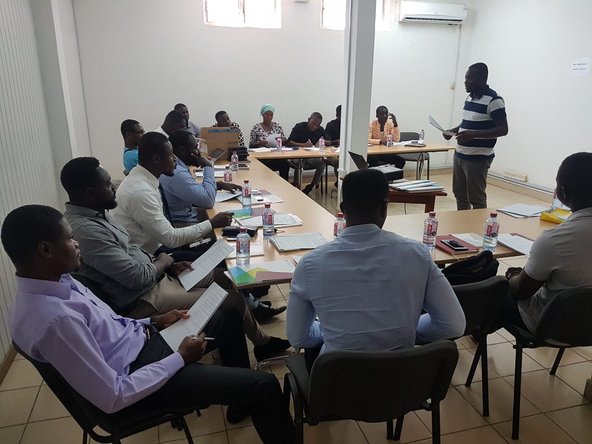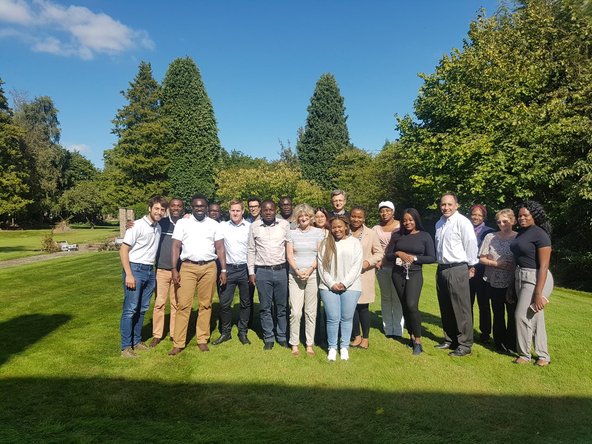Programme: Small Research Grant
Name of PI: Christian Darko
Title of project: Transition from school to work: unravelling the mechanisms for employment in Ghana
Start and end dates: 2018 – 2021
Award amount: £9,973.30
Institution: University of Birmingham
About the project
This study investigated the transition from school to work among tertiary education graduates in Ghana. The focus of the research is on the effectiveness of the employment-focussed national service programme and the role of pre-national service labour market experience on employment probability. The project is the first to provide a detailed empirical analysis of school-to-work transition in Ghana and the mechanisms that facilitate this process. The study addressed the following research questions:
- does family background influence the destination of graduates in the so-called ‘random’ national service allocation, and if so, how does this impact on labour market outcomes after completion of the programme;
- do graduates with previous work experience (including internships) have higher(lower) likelihoods of (un)employment after completion of the scheme, and what are the impacts on early labour market outcomes;
- how effective is the national service scheme in preparing graduates for the labour market and;
- does effectiveness differ by individual circumstance, family background and gender?

Using unique survey data collected over two rounds enabled the research team to gain a better understanding of transitions in employment states. A key contribution of this study is its focus on pre-labour market experience, captured by internship experience during university. The changing nature of labour markets characterised by high levels of youth unemployment means that individuals are often required to have some level of work experience. This has resulted in increased uptake of internships during tertiary education. Part of the project provided insight into this by exploring how internships affect labour market outcomes, an area that has received limited consideration by researchers and policy makers in developing countries. The analysis is ongoing and it is hoped that the findings of this study will generate lots of interest from not just academics but also practitioners, policy makers and government departments.
Impacts and value
A key group of academic beneficiaries are those who study career development and labour economists. The project will provide in-depth insights into how young people navigate their entry into the labour market, and for those who are already in employment, how they are able to progress or transition to higher stages. Being able to follow graduates during their mandatory work placement (national service) and before entering the labour market means we are able to explore structural features against which labour market access are defined. Outputs from this project will be vital to researchers seeking to further develop theory on labour market rigidities and employment access, challenges, and employment choices of young people. Academics from these fields and those who study education and the process of human capital development will also benefit from the findings of this project. Preliminary analysis and discussions have enhanced understanding, mainly among non-Africa based researchers, of the severity of youth un(der)employment and labour market challenges.
Data from the project is currently being analysed and it is expected to have important policy implications. There have been informal discussions with practitioners and government officials which have led to the development of collaborative activities and networking opportunities. We aim to share our findings with stakeholders.

Benefits of the award
“The award of the funding has been pivotal in building my reputation and research profile. The interest generated by the project has led to development of research activities including co-organising workshops (since 2019 – see further below), leading funding applications and invitations to collaborate on preparing research papers, and invitations to lead research streams.”
Through presentations and attendance at workshops, the team have developed and strengthened their network with academics, practitioners and government departments. For instance, they have organised workshops at the University of Birmingham around the theme of education and employment challenges in low and middle-income countries since 2019, with the initial idea based on the British Academy/Leverhulme award. A key resulting collaborative research project that has followed from this research includes a recently awarded ESRC funding (Transforming Working Lives Research Call 2021) for an interdisciplinary study that will examine minority ethnic doctors' career transitions in medicine, with colleagues from the University of Birmingham and Manchester Metropolitan University.
Discussions on the aims and preliminary analysis have resulted in a number of collaborative research publications in areas of education and labour market studies, including:
- Carmichael, F, Darko, C, Kanji, S., and Vasilakos, N. 'The contribution of girls' longer hours in unpaid work to gender gaps in early adult employment: evidence from Ethiopia, India, Peru and Vietnam', Feminist Economics. Accepted/in-press.
- Carmichael, F, Darko, C. and Kanji, S. (2021). ‘Wage effects of educational mismatch and job search in Ghana and Kenya’, Education Economics, https://doi.org/10.1080/09645292.2021.1900790
- Carmichael F., Darko, C. Ercolani, M. G., Ozgen, C. and Siebert, S. (2020), ‘Evidence on Intergenerational Income Transmission Using Complete Dutch Population Data’, Economics Letters, Vol 189, p.108996. doi.org/10.1016/j.econlet.2020.108996
Following the award, the team have received further funding support, mainly to develop their research agenda on education and employment of marginalised groups, including organising workshops, data analysis, and additional data collection. These include:
- April 2022 : ESRC, “Exploring minority ethnic doctors' career transitions in medicine: a life course approach.
- 2021: Institute for Global Innovation), University of Birmingham, Data processing for project on “Education, Early Marriage and Fertility in Low- and Middle-Income countries”.
- 2020: IGI, Workshop funding, “inclusive employment, commuting and wellbeing in sub-Saharan Africa”.,.
- 2019: Birmingham-Illinois Partnership for Discovery, Engagement and Education Seed Fund. Workshop funding, “Education, employment and unemployment of young men and women in sub-Saharan Africa”.
- 2018: IGI, Pilot project, “Commuting in Sub-Saharan Africa: A gendered analysis of the impact on employment and well-being."
- 2019: Birmingham Business School, Workshop funding, “Education, employment and unemployment of young men and women in sub-Saharan Africa”.
- 2019: Birmingham Business School, Workshop funding, “Education and employment of young people and disadvantaged groups in sub-Saharan Africa”.